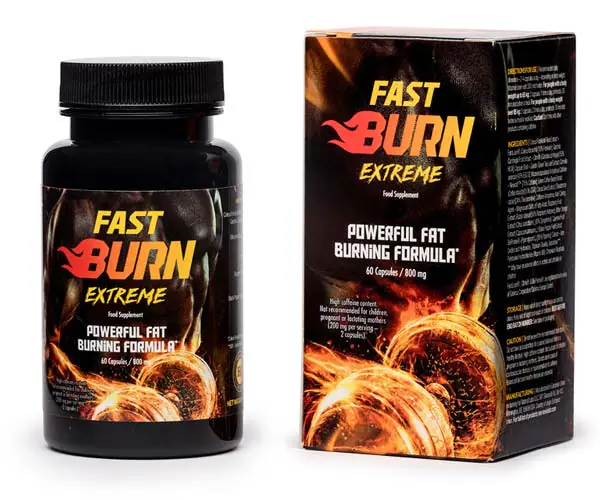Reviews
The 7 Strongest Over-the-Counter (OTC) Appetite Suppressants
Struggling to lose weight? You’re not alone in battling those relentless cravings. Thankfully, there’s a beacon of hope in the form of appetite suppressants. Available in various forms like pills, powders, or teas, these aids are designed to help you feel satiated, quell hunger pangs, and ensure you adhere to your diet plan. Yet, the vast array of options available can make choosing the right one a complex task. Fear not, for we’re here to simplify things for you. We aim to highlight the best strongest over-the-counter appetite suppressants, shedding light on how they function, their safety considerations, and how to effectively incorporate them into your weight loss strategy.

How to Determine if an Appetite Suppressant Works
So, what exactly are over-the-counter appetite suppressants? Simply put, they’re products you can snag without a doctor’s note, available in stores or online. These goodies typically contain ingredients that help you feel fuller, less peckish, or even more energized, making it easier to cut down on calories.
But here’s the kicker: not all appetite suppressants are created equal. What works for one person might not work for another. So, how do you know if a particular suppressant is the real deal? Well, you’ve got two main ways to suss it out: the science and the reviews.
The science behind these suppressants can clue you in on what the ingredients do and how they interact with your body. And then there are the reviews—real people sharing their experiences and thoughts on the product. So, armed with this info, you can find the perfect appetite suppressant to support your weight loss goals.
7 Strongest Over-the-Counter Appetite Suppressants in 2024
Achieving weight loss means taking in fewer calories than what you burn off, but it’s often hard to keep hunger and cravings at bay. This is where appetite suppressants step in to help. They work by increasing feelings of fullness and reducing hunger, which assists in maintaining your diet and speeding up the weight loss journey. A variety of appetite suppressants can be found without a prescription, with certain ones being exceptionally effective. Although some may prefer prescription methods, the top non-prescription appetite suppressant can provide significant perks without a doctor’s prescription. Here are the seven most effective over-the-counter appetite suppressants to think about.
- PhenGold: (Editor Choice)
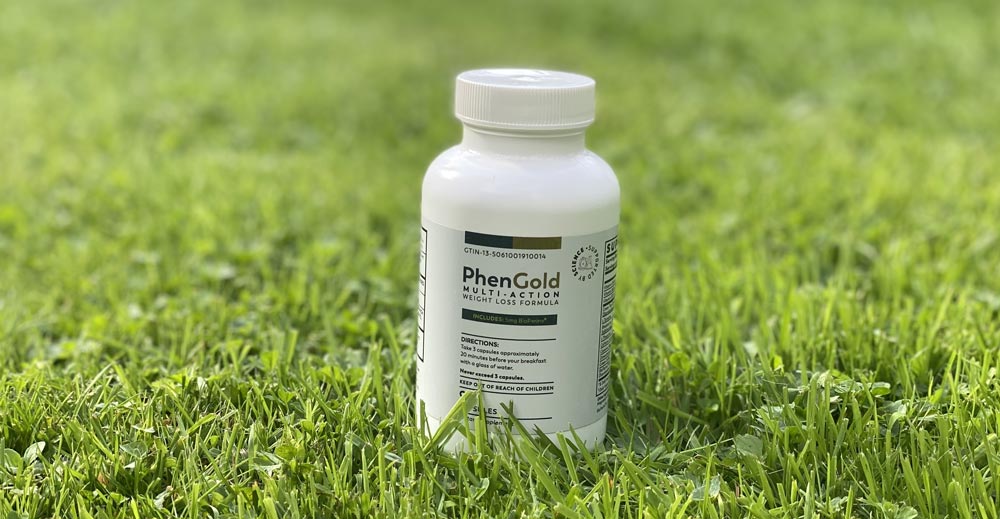
PhenGold stands as a formidable appetite suppressant designed to facilitate weight loss through enhanced metabolism, increased energy levels, and reduced hunger. Formulated with natural ingredients such as green tea, green coffee, and L-theanine, it aids in fat burning while promoting a sense of well-being throughout your weight loss journey. PhenGold offers a comprehensive solution to weight management, harnessing the power of natural elements for effective results.
- PhenQ: PhenQ goes beyond mere appetite suppression, offering a multifaceted approach to weight loss. In addition to curbing appetite, it accelerates fat burning, boosts energy levels, enhances mood, and prevents the formation of new fat cells. Its key component, α-Lacys Reset®, amps up metabolism and body heat, facilitating faster fat burning. With ingredients like nopal cactus fiber and caffeine, PhenQ promotes reduced hunger and increased energy expenditure, catering to diverse weight loss goals with a single pill.
- Phen24: Phen24 provides round-the-clock weight loss support with its unique day and night formulas. The daytime formula ramps up metabolism and energy levels for increased calorie burn, while the nighttime formula curbs nocturnal cravings and promotes better sleep without stimulants. Ideal for individuals seeking a comprehensive 24-hour solution to weight management, Phen24 ensures that both diet and sleep align with your weight loss objectives.
- Trimtone:
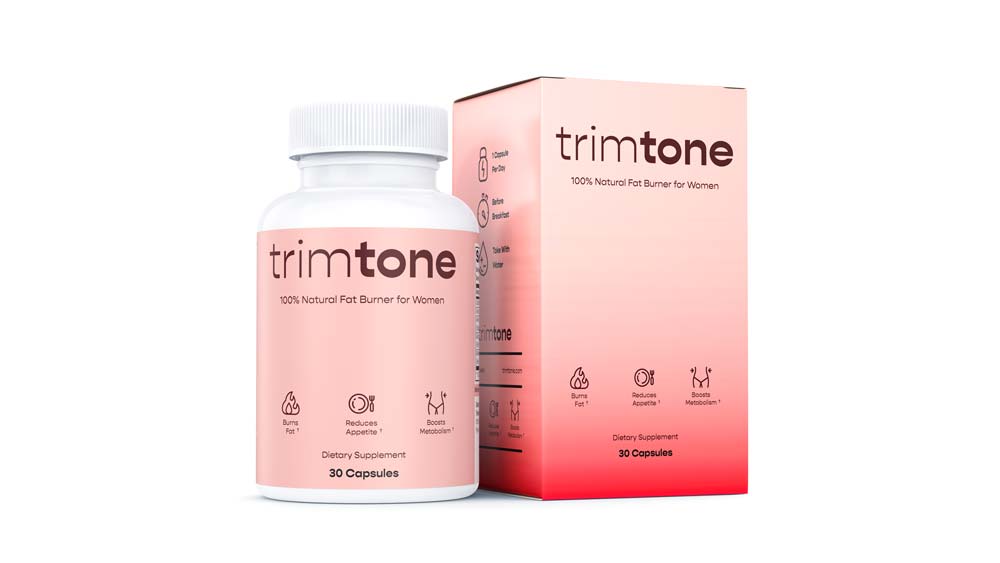
Tailored specifically for women, Trimtone functions as a natural fat burner that elevates metabolism and reduces hunger pangs. Powered by ingredients like green coffee and green tea, it aids in fat oxidation, appetite control, and heightened energy levels. With its straightforward once-daily formula, Trimtone offers a simple yet potent solution for women striving to achieve their weight loss goals. - PrimeShred:
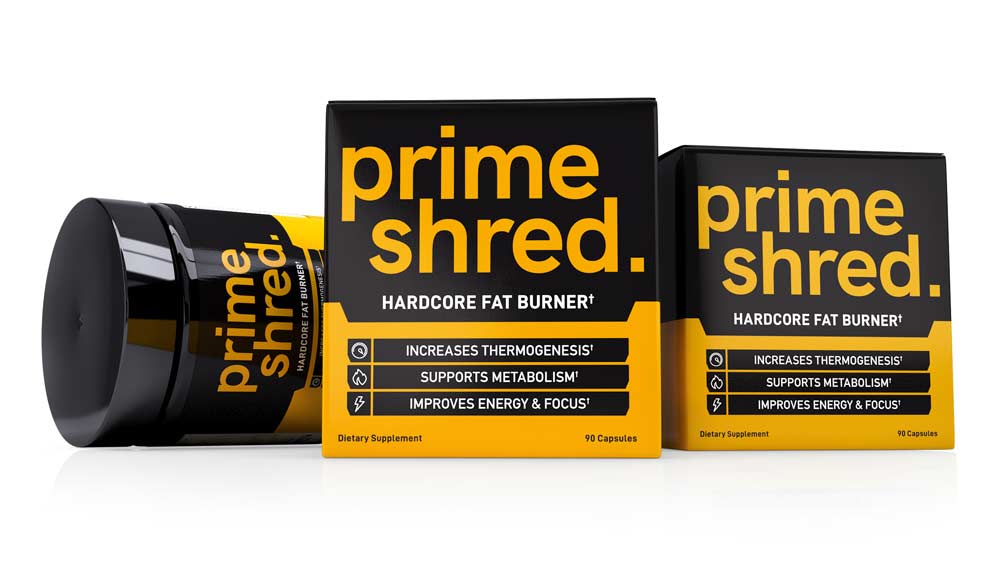
Geared towards men, PrimeShred is a potent fat burner that accelerates metabolism, energy production, and fat breakdown. Additionally, it includes mood-enhancing ingredients to bolster motivation. With its advanced triple-threat formula, PrimeShred optimizes cognitive function, enabling focus on fitness goals. An excellent choice for men aiming to shed fat while preserving muscle mass, PrimeShred provides a comprehensive strategy for attaining a lean physique. - Zotrim:
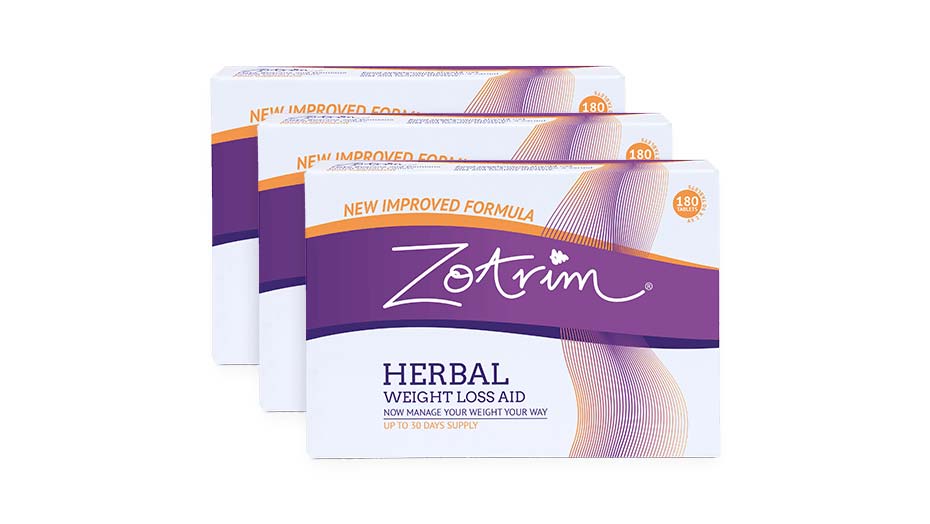
Zotrim is a scientifically backed appetite suppressant that diminishes between-meal snacking and promotes portion control. Its herbal formula induces feelings of fullness, slows gastric emptying, and extends satiety. Particularly beneficial for individuals struggling with overeating and snacking habits, Zotrim offers a natural approach to appetite management and weight loss. - Capsiplex: Capsiplex harnesses the metabolism-boosting properties of capsaicin, the compound responsible for chili peppers’ heat, to enhance calorie expenditure at rest and during exercise. Additionally, it reduces hunger and elevates energy levels, facilitating weight loss from multiple angles. With its convenient one-pill-a-day regimen, Capsiplex serves as a spicy addition to a balanced diet and exercise routine, aiding in accelerated fat loss.
How to Choose the Right OTC Appetite Suppressant
It’s crucial to choose the safest, most effective appetite suppressant to ensure your health and success in weight loss. Selecting an appropriate OTC appetite suppressant involves careful consideration of the ingredients, potential side effects, and how they align with your specific health needs and goals. Look for products with transparent ingredient lists and research-backed claims. It’s also wise to consider any pre-existing health conditions or medications that could interact with the supplement.
Choosing the right over-the-counter (OTC) appetite suppressant can feel like navigating a maze filled with promises of quick weight loss and miraculous results. However, with a strategic approach and informed decision-making, you can select a supplement that supports your health and weight management goals responsibly. Here’s a guide to help you make an informed choice, emphasizing safety, efficacy, and compatibility with your lifestyle.
- Understand Your Needs
Before diving into the sea of OTC appetite suppressants, take a moment to understand your specific needs and goals. Are you looking for a supplement to help curb snacking, or do you need something to make you feel fuller for longer? Understanding your eating habits and weight loss challenges will help you choose a product that targets your specific issues. - Research Active Ingredients
OTC appetite suppressants come with a variety of active ingredients, each with its own mechanism of action. Familiarize yourself with the most common ingredients and their effects:- Fiber: Supplements like glucomannan absorb water and expand in your stomach, making you feel full.
- Caffeine and Green Tea Extract: These stimulants increase calorie burn and reduce appetite but can cause jitteriness or sleep disturbances in sensitive individuals.
- Garcinia Cambogia: Claimed to block the body’s ability to make fat and suppress appetite, though evidence is mixed.
- Conjugated Linoleic Acid (CLA): May reduce appetite and increase fat burning, but results and side effects vary.
Researching these ingredients will help you understand how they might affect your body and if they align with your health goals.
- Evaluate Safety and Side Effects
While OTC appetite suppressants are generally safe for most people, they can cause side effects in some. Common side effects include nausea, constipation, headaches, and increased heart rate. Look for products with a transparent list of ingredients and research their potential side effects. If you have pre-existing health conditions or are taking medications, consult a healthcare professional to avoid adverse interactions. - Check for Clinical Evidence
Many supplements claim to support weight loss, but not all are backed by scientific evidence. Look for products that have undergone clinical trials and have been proven effective in reputable studies. While no supplement will work miracles, choosing one with scientifically supported ingredients increases your chances of seeing results. - Consider Your Lifestyle
The best appetite suppressant for you should fit seamlessly into your lifestyle. If you’re sensitive to caffeine, a stimulant-free option might be best. If you struggle with swallowing pills, a powder or liquid supplement could be more suitable. Consider your daily routine and choose a product that you’ll be consistent with. - Read Reviews and Testimonials While individual experiences can vary, reading reviews and testimonials can provide insight into a product’s effectiveness and potential side effects. Look for reviews from credible sources and pay attention to common themes. If many users report the same issues or benefits, you might have a similar experience.
- Comparison with Prescription Appetite Suppressants When comparing OTC appetite suppressants to their prescription counterparts, it’s evident that prescription options often offer more potent effects but come with a higher risk of side effects. Prescription medications like Orlistat work by preventing the absorption of fat, but they can lead to uncomfortable digestive issues. This comparison underscores the necessity of consulting healthcare professionals when considering weight loss medications, as they can provide guidance based on your health history and weight loss goals.
- Start with a Trial Period Even with thorough research, you won’t know how a supplement affects you until you try it. Start with a small quantity to assess your body’s response. If you experience adverse effects or see no improvement in your appetite control, it might not be the right fit for you.
A User Guide to Maximizing the Benefits of OTC Appetite Suppressants
To maximize the benefits of an OTC appetite suppressant, it’s important to follow the recommended dosages and integrate the supplement into a healthy lifestyle framework. This means maintaining a nutritious diet, staying active, and ensuring adequate hydration. Remember, these supplements are designed to complement, not replace, healthy habits.
Common Myths and Misconceptions
The weight loss supplement industry is rife with myths and misconceptions, often promising quick fixes and dramatic results. It’s critical to approach these claims with skepticism and conduct your own research. For instance, the idea that any supplement can lead to significant weight loss without dietary or lifestyle changes is misleading and can detract from the importance of a balanced approach to weight management.
The Progressive Future of Appetite Suppressants
The appetite suppressant market is continually evolving, with ongoing research and development leading to new products and formulations. Innovations in natural supplements and a growing understanding of nutritional science promise to offer more effective and safer options in the future. However, regulatory oversight will play a crucial role in ensuring these advancements provide real benefits without compromising safety.
OTC Appetite Suppressants: Frequently Asked Questions
Thinking about trying over-the-counter (OTC) appetite suppressants for weight loss? Before you do, it’s important to understand the facts and potential risks. Here are some frequently asked questions:
- Do OTC appetite suppressants work?
The effectiveness of OTC appetite suppressants is variable. While some may offer modest weight loss benefits, others might not have a significant impact. Their effectiveness can depend on various factors, including individual response and the specific type of supplement. - What types of OTC appetite suppressants are available?
- Conjugated Linoleic Acid (CLA): Although it may influence appetite-regulating genes and hormones, CLA has shown little effect on appetite in humans.
- Bitter Orange (Synephrine): May increase metabolic rate but its effectiveness on weight loss is inconclusive.
- Garcinia Cambogia: Some studies suggest it suppresses appetite and promotes weight loss, while others show minimal effects.
- Glucomannan: A soluble fiber that may promote short-term weight loss by increasing fullness.
- Hoodia Gordonii: Currently, there’s no evidence supporting its use for weight loss or appetite suppression.
- Green Coffee Bean Extract: May reduce appetite and promote weight loss in some studies.
- Other supplements: Including guarana, acacia fiber, saffron extract, guar gum, forskolin, and chromium picolinate, have varying degrees of effectiveness and evidence supporting their use.
- Are OTC appetite suppressants safe?
While generally safer than prescription medications, OTC appetite suppressants can still cause side effects such as digestive issues, headaches, increased heart rate, and interactions with medications. The safety of these supplements can vary widely, and some may have potential risks. - Who should avoid OTC appetite suppressants?
Individuals with certain health conditions, such as heart disease, high blood pressure, diabetes, or those who are pregnant or breastfeeding, should be cautious. It’s always recommended to consult a healthcare provider before starting any new supplement. - What are the alternatives to OTC appetite suppressants?
Effective weight loss strategies include healthy eating, portion control, regular exercise, and behavioral changes. Focusing on sustainable lifestyle modifications is often more effective and safer than relying on supplements.
In conclusion, while OTC appetite suppressants can offer a potential aid in weight loss efforts, they should be used judiciously and as part of a comprehensive approach to health and wellness. Always consult with a healthcare provider before starting any new supplement, especially if you have existing health conditions or concerns.Struggling to lose weight? You’re not alone in battling those relentless cravings. Thankfully, there’s a beacon of hope in the form of appetite suppressants. Available in various forms like pills, powders, or teas, these aids are designed to help you feel satiated, quell hunger pangs, and ensure you adhere to your diet plan. Yet, the vast array of options available can make choosing the right one a complex task. Fear not, for we’re here to simplify things for you. We aim to highlight the best strongest over-the-counter appetite suppressants, shedding light on how they function, their safety considerations, and how to effectively incorporate them into your weight loss strategy.

How to Determine if an Appetite Suppressant Works
So, what exactly are over-the-counter appetite suppressants? Simply put, they’re products you can snag without a doctor’s note, available in stores or online. These goodies typically contain ingredients that help you feel fuller, less peckish, or even more energized, making it easier to cut down on calories.
But here’s the kicker: not all appetite suppressants are created equal. What works for one person might not work for another. So, how do you know if a particular suppressant is the real deal? Well, you’ve got two main ways to suss it out: the science and the reviews.
The science behind these suppressants can clue you in on what the ingredients do and how they interact with your body. And then there are the reviews—real people sharing their experiences and thoughts on the product. So, armed with this info, you can find the perfect appetite suppressant to support your weight loss goals.
7 Strongest Over-the-Counter Appetite Suppressants in 2024
Achieving weight loss means taking in fewer calories than what you burn off, but it’s often hard to keep hunger and cravings at bay. This is where appetite suppressants step in to help. They work by increasing feelings of fullness and reducing hunger, which assists in maintaining your diet and speeding up the weight loss journey. A variety of appetite suppressants can be found without a prescription, with certain ones being exceptionally effective. Although some may prefer prescription methods, the top non-prescription appetite suppressant can provide significant perks without a doctor’s prescription. Here are the seven most effective over-the-counter appetite suppressants to think about.
- PhenGold: (Editor Choice)

PhenGold stands as a formidable appetite suppressant designed to facilitate weight loss through enhanced metabolism, increased energy levels, and reduced hunger. Formulated with natural ingredients such as green tea, green coffee, and L-theanine, it aids in fat burning while promoting a sense of well-being throughout your weight loss journey. PhenGold offers a comprehensive solution to weight management, harnessing the power of natural elements for effective results.
- PhenQ: PhenQ goes beyond mere appetite suppression, offering a multifaceted approach to weight loss. In addition to curbing appetite, it accelerates fat burning, boosts energy levels, enhances mood, and prevents the formation of new fat cells. Its key component, α-Lacys Reset®, amps up metabolism and body heat, facilitating faster fat burning. With ingredients like nopal cactus fiber and caffeine, PhenQ promotes reduced hunger and increased energy expenditure, catering to diverse weight loss goals with a single pill.
- Phen24: Phen24 provides round-the-clock weight loss support with its unique day and night formulas. The daytime formula ramps up metabolism and energy levels for increased calorie burn, while the nighttime formula curbs nocturnal cravings and promotes better sleep without stimulants. Ideal for individuals seeking a comprehensive 24-hour solution to weight management, Phen24 ensures that both diet and sleep align with your weight loss objectives.
- Trimtone:

Tailored specifically for women, Trimtone functions as a natural fat burner that elevates metabolism and reduces hunger pangs. Powered by ingredients like green coffee and green tea, it aids in fat oxidation, appetite control, and heightened energy levels. With its straightforward once-daily formula, Trimtone offers a simple yet potent solution for women striving to achieve their weight loss goals. - PrimeShred:

Geared towards men, PrimeShred is a potent fat burner that accelerates metabolism, energy production, and fat breakdown. Additionally, it includes mood-enhancing ingredients to bolster motivation. With its advanced triple-threat formula, PrimeShred optimizes cognitive function, enabling focus on fitness goals. An excellent choice for men aiming to shed fat while preserving muscle mass, PrimeShred provides a comprehensive strategy for attaining a lean physique. - Zotrim:

Zotrim is a scientifically backed appetite suppressant that diminishes between-meal snacking and promotes portion control. Its herbal formula induces feelings of fullness, slows gastric emptying, and extends satiety. Particularly beneficial for individuals struggling with overeating and snacking habits, Zotrim offers a natural approach to appetite management and weight loss. - Capsiplex: Capsiplex harnesses the metabolism-boosting properties of capsaicin, the compound responsible for chili peppers’ heat, to enhance calorie expenditure at rest and during exercise. Additionally, it reduces hunger and elevates energy levels, facilitating weight loss from multiple angles. With its convenient one-pill-a-day regimen, Capsiplex serves as a spicy addition to a balanced diet and exercise routine, aiding in accelerated fat loss.
How to Choose the Right OTC Appetite Suppressant
It’s crucial to choose the safest, most effective appetite suppressant to ensure your health and success in weight loss. Selecting an appropriate OTC appetite suppressant involves careful consideration of the ingredients, potential side effects, and how they align with your specific health needs and goals. Look for products with transparent ingredient lists and research-backed claims. It’s also wise to consider any pre-existing health conditions or medications that could interact with the supplement.
Choosing the right over-the-counter (OTC) appetite suppressant can feel like navigating a maze filled with promises of quick weight loss and miraculous results. However, with a strategic approach and informed decision-making, you can select a supplement that supports your health and weight management goals responsibly. Here’s a guide to help you make an informed choice, emphasizing safety, efficacy, and compatibility with your lifestyle.
- Understand Your Needs
Before diving into the sea of OTC appetite suppressants, take a moment to understand your specific needs and goals. Are you looking for a supplement to help curb snacking, or do you need something to make you feel fuller for longer? Understanding your eating habits and weight loss challenges will help you choose a product that targets your specific issues. - Research Active Ingredients
OTC appetite suppressants come with a variety of active ingredients, each with its own mechanism of action. Familiarize yourself with the most common ingredients and their effects:- Fiber: Supplements like glucomannan absorb water and expand in your stomach, making you feel full.
- Caffeine and Green Tea Extract: These stimulants increase calorie burn and reduce appetite but can cause jitteriness or sleep disturbances in sensitive individuals.
- Garcinia Cambogia: Claimed to block the body’s ability to make fat and suppress appetite, though evidence is mixed.
- Conjugated Linoleic Acid (CLA): May reduce appetite and increase fat burning, but results and side effects vary.
Researching these ingredients will help you understand how they might affect your body and if they align with your health goals.
- Evaluate Safety and Side Effects
While OTC appetite suppressants are generally safe for most people, they can cause side effects in some. Common side effects include nausea, constipation, headaches, and increased heart rate. Look for products with a transparent list of ingredients and research their potential side effects. If you have pre-existing health conditions or are taking medications, consult a healthcare professional to avoid adverse interactions. - Check for Clinical Evidence
Many supplements claim to support weight loss, but not all are backed by scientific evidence. Look for products that have undergone clinical trials and have been proven effective in reputable studies. While no supplement will work miracles, choosing one with scientifically supported ingredients increases your chances of seeing results. - Consider Your Lifestyle
The best appetite suppressant for you should fit seamlessly into your lifestyle. If you’re sensitive to caffeine, a stimulant-free option might be best. If you struggle with swallowing pills, a powder or liquid supplement could be more suitable. Consider your daily routine and choose a product that you’ll be consistent with. - Read Reviews and Testimonials While individual experiences can vary, reading reviews and testimonials can provide insight into a product’s effectiveness and potential side effects. Look for reviews from credible sources and pay attention to common themes. If many users report the same issues or benefits, you might have a similar experience.
- Comparison with Prescription Appetite Suppressants When comparing OTC appetite suppressants to their prescription counterparts, it’s evident that prescription options often offer more potent effects but come with a higher risk of side effects. Prescription medications like Orlistat work by preventing the absorption of fat, but they can lead to uncomfortable digestive issues. This comparison underscores the necessity of consulting healthcare professionals when considering weight loss medications, as they can provide guidance based on your health history and weight loss goals.
- Start with a Trial Period Even with thorough research, you won’t know how a supplement affects you until you try it. Start with a small quantity to assess your body’s response. If you experience adverse effects or see no improvement in your appetite control, it might not be the right fit for you.
A User Guide to Maximizing the Benefits of OTC Appetite Suppressants
To maximize the benefits of an OTC appetite suppressant, it’s important to follow the recommended dosages and integrate the supplement into a healthy lifestyle framework. This means maintaining a nutritious diet, staying active, and ensuring adequate hydration. Remember, these supplements are designed to complement, not replace, healthy habits.
Common Myths and Misconceptions
The weight loss supplement industry is rife with myths and misconceptions, often promising quick fixes and dramatic results. It’s critical to approach these claims with skepticism and conduct your own research. For instance, the idea that any supplement can lead to significant weight loss without dietary or lifestyle changes is misleading and can detract from the importance of a balanced approach to weight management.
The Progressive Future of Appetite Suppressants
The appetite suppressant market is continually evolving, with ongoing research and development leading to new products and formulations. Innovations in natural supplements and a growing understanding of nutritional science promise to offer more effective and safer options in the future. However, regulatory oversight will play a crucial role in ensuring these advancements provide real benefits without compromising safety.
OTC Appetite Suppressants: Frequently Asked Questions
Thinking about trying over-the-counter (OTC) appetite suppressants for weight loss? Before you do, it’s important to understand the facts and potential risks. Here are some frequently asked questions:
- Do OTC appetite suppressants work?
The effectiveness of OTC appetite suppressants is variable. While some may offer modest weight loss benefits, others might not have a significant impact. Their effectiveness can depend on various factors, including individual response and the specific type of supplement. - What types of OTC appetite suppressants are available?
- Conjugated Linoleic Acid (CLA): Although it may influence appetite-regulating genes and hormones, CLA has shown little effect on appetite in humans.
- Bitter Orange (Synephrine): May increase metabolic rate but its effectiveness on weight loss is inconclusive.
- Garcinia Cambogia: Some studies suggest it suppresses appetite and promotes weight loss, while others show minimal effects.
- Glucomannan: A soluble fiber that may promote short-term weight loss by increasing fullness.
- Hoodia Gordonii: Currently, there’s no evidence supporting its use for weight loss or appetite suppression.
- Green Coffee Bean Extract: May reduce appetite and promote weight loss in some studies.
- Other supplements: Including guarana, acacia fiber, saffron extract, guar gum, forskolin, and chromium picolinate, have varying degrees of effectiveness and evidence supporting their use.
- Are OTC appetite suppressants safe?
While generally safer than prescription medications, OTC appetite suppressants can still cause side effects such as digestive issues, headaches, increased heart rate, and interactions with medications. The safety of these supplements can vary widely, and some may have potential risks. - Who should avoid OTC appetite suppressants?
Individuals with certain health conditions, such as heart disease, high blood pressure, diabetes, or those who are pregnant or breastfeeding, should be cautious. It’s always recommended to consult a healthcare provider before starting any new supplement. - What are the alternatives to OTC appetite suppressants?
Effective weight loss strategies include healthy eating, portion control, regular exercise, and behavioral changes. Focusing on sustainable lifestyle modifications is often more effective and safer than relying on supplements.
In conclusion, while OTC appetite suppressants can offer a potential aid in weight loss efforts, they should be used judiciously and as part of a comprehensive approach to health and wellness. Always consult with a healthcare provider before starting any new supplement, especially if you have existing health conditions or concerns.

